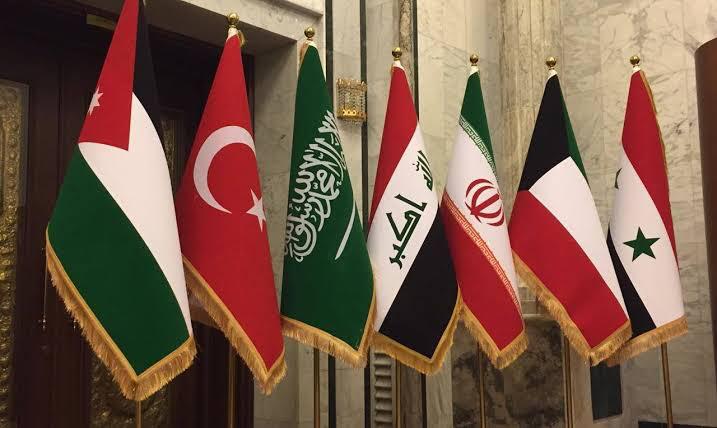The Iraqi Neighbouring Countries Conference, set to be held at the end of August, is gaining attention, with the participation of many Arab countries, as well as non-Arab regional countries such as Iran and Turkey, and countries from outside the region such as France. The conference aims to achieve a renewed role for Iraq on the regional political scene, and to strengthen its ties with other Arab countries. Baghdad has made other previous attempts to achieve this goal, with a conference held in 2012, as well as the summit held with Egypt and Jordan on the 27th of June this year. This time around the conference is expected to enjoy wider Arab representation and undertake more in-depth discussions concerning Arab and regional issues.
Iraq has many objectives from this conference, which include:
- Bolstering Arab national security: As a result of domestic and external factors, Iraq has been inactive within the Arab sphere, allowing non- Arab actors a wide scope to interfere in Iraqi affairs. This has had a negative impact both in Iraq and on the Arab world. The conference seeks to rejuvenate Iraqi-Arab relations. And as Iraq is an arena where Arab and regional interests intersect, the conflict may provide an opportunity to reach some level of understanding between Arab and non-Arab regional countries, regarding contested issues that relate primarily to their national security. Neighbouring countries have been directly or indirectly affected by the security situation in Iraq, especially the activities of terrorist organizations, which Iraq has succeeded in eliminating to a large extent.
- Preparing for US withdrawal from Iraq: Iraq’s invitation to Gulf countries, Egypt and Jordan to participate in the conference reflects the importance it places on Arab support, as it undergoes significant political and security related changes. Although the withdrawal of US troops from Iraq is a domestic issue, it has regional implications related to the fight against ISIS. Arab countries also have concerns regarding interventions by some regional countries in Iraq, which in turn impact other Arab countries.
- Reaching a point of regional strategic balance: Iraq is seeking to create a balance between its Arab and regional neighbours in respect to its foreign policy and considers that strengthening its links to the Arab world will help achieve this objective. The current Iraqi government also wishes to bring to an end the proxy wars being conducted by Tehran and Washington on Iraqi soil. Arriving at some form of regional strategic balance would help Iraq exit the difficult position it finds itself in.
- Restoring Iraq’s Status: Iraq is seeking to regain its status as an active player on the Arab and regional scenes. It perceives that it can play a role in establishing regional stability, especially in view of its ability to mediate between various countries. This could provide a starting point from which to resolve outstanding crises in the region.
Potential Challenges:
Despite optimism regarding the conference, there are some challenges that must be taken into consideration, for example:
1- The current political context: Iraqi Prime Minister Mustafa Al-Kazemi is considered to have a strong Arabist orientation, which is reflected in his efforts to rebalance Iraqi foreign policy. He and his government have displayed a much higher level of engagement with the Arab world than his predecessors. He has visited several Arab capitals and has received Arab leaders who visited Baghdad for the first time in decades, as well as signing many economic and security agreements with Arab countries. However, the question remains; would a new Iraqi government, with only two months to go until the legislative elections on October 10, be able to uphold and implement resolutions reached by this conference?
2- The complexity of Arab-regional relations: The problems involved in the relationships between Arab countries and their regional neighbours extend beyond Iraq. Although this conference may be an opportunity to explore the possibility of rapprochement, the magnitude of the challenges remains daunting, especially between Arab countries on the one hand and Turkey and Iran each on the other. The latter appear intent on imposing their agendas by force and through creating de-facto realities on the ground, and moreover seek to employ some domestic Iraqi forces in this respect. With this conference, Iraq at a minimum wish to send a message to these parties that they must stop such practices. Moreover, allowing Arab actors closer relations with Iraq will result in diminishing the impact of these regional powers, which have expanded their presence in Iraq during the last few years.
This conference, should it take place, can be considered an unprecedented Iraqi initiative, allowing all regional actors an opportunity to contain the current tensions and conflicts. It also represents a milestone in the history of Iraqi foreign policy, for adopting the objectives of restoring Iraqi sovereignty and independence, as well as regaining Iraq’s regional role, regardless of its outcomes and the degree regional actors will respond to its declared aspirations.

